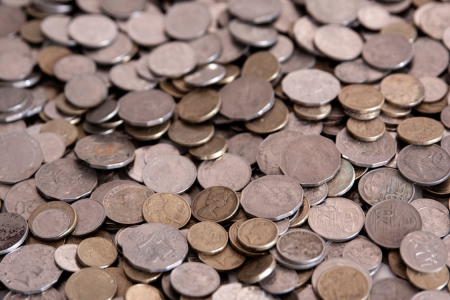Is Australia saying goodbye to coins? Here’s what the Mint is planning next
By
Maan
- Replies 1
Coins have been a cornerstone of Australia’s economy for decades, yet their future is now under scrutiny.
Recent developments have prompted questions about their role in a world that’s rapidly embracing cashless transactions.
What’s happening behind the scenes could reshape the way Australians think about money and the Mint’s purpose in the years to come.
The Royal Australian Mint, operational since 1965, has long been integral to the nation’s coin production. Established a year before the switch from British pounds to Australian dollars, its traditional role is evolving as the country increasingly embraces cashless transactions.
The past financial year marked a significant decline in the Mint’s coin production, plummeting from 110 million in 2022 to 2023 to just 47 million by June 2024. This drop was well below the anticipated 128 million coins and stemmed largely from reduced demand by banks.
Leigh Gordon, the Mint’s chief executive, explained that although demand for coins decreased, the actual reduction wasn’t as steep as the raw numbers suggested.
‘We estimate about 100 million pieces (coins) were consumed last year, demanded out of the broader system,’ Gordon stated.
A major factor influencing coin production was the merger of Australia’s leading cash transport firms, Armaguard and Prosegur, which consolidated coin storage depots. As a result, banks drew on existing reserves rather than ordering new coins from the Mint.
For the current financial year, the Mint set a production target of 62 million coins, which Gordon confirmed was already being exceeded. Despite this, the institution is pivoting towards future sustainability.
With a decreasing reliance on cash, the Mint is exploring how to adapt while maintaining its relevance.
With a decreasing reliance on cash, the Mint is exploring how to adapt while maintaining its relevance.
‘One of the core services we provide at the Mint is as the manufacturer of circulating coins to meet the demands of the banks, and that’s the key public value that we deliver,’ Gordon said.
Research indicated Australians still valued cash as part of the payment ecosystem. Concerns about digital system reliability, including outages, contributed to the sentiment.
The Albanese government’s proposed cash mandate, announced in November, aims to ensure businesses continue accepting cash for essentials. This move could potentially secure a future role for coins.
In addition to Australian coins, the Mint has found success producing collectible and foreign coins. For instance, the Mint made 73.3 million foreign coins last financial year, exceeding its domestic production for the first time.
These coins serve nations such as Papua New Guinea, Timor Leste, and Vanuatu, which lack their own minting facilities.
‘Last year was certainly the biggest number that I could find for foreign circulating coins,’ Gordon noted, highlighting the social and financial significance of this work.
Collectible coins, like the Bluey $1 series, also boosted the Mint’s appeal. Following a gallery renovation, 350,000 visitors explored the Mint last financial year, reflecting public interest in its broader offerings.
Although fewer Australians rely on cash, 47 million coins still entered circulation in 2024. Gordon speculated many coins end up in jars, car consoles, or forgotten places.
‘I do think a lot of them go into jars,’ he remarked, citing anecdotal accounts of recyclers discovering loose change in crushed cars and railway carriages.
The Royal Australian Mint continues to adapt, shifting focus to collectibles and foreign markets while maintaining its traditional services for as long as coins remain essential to Australian life.

With millions of coins still entering circulation and a strong public sentiment for cash, how long will physical currency remain a part of our daily lives? What do you think—should coins stay, or is it time to let them go?
Let us know in the comments below.
Recent developments have prompted questions about their role in a world that’s rapidly embracing cashless transactions.
What’s happening behind the scenes could reshape the way Australians think about money and the Mint’s purpose in the years to come.
The Royal Australian Mint, operational since 1965, has long been integral to the nation’s coin production. Established a year before the switch from British pounds to Australian dollars, its traditional role is evolving as the country increasingly embraces cashless transactions.
The past financial year marked a significant decline in the Mint’s coin production, plummeting from 110 million in 2022 to 2023 to just 47 million by June 2024. This drop was well below the anticipated 128 million coins and stemmed largely from reduced demand by banks.
Leigh Gordon, the Mint’s chief executive, explained that although demand for coins decreased, the actual reduction wasn’t as steep as the raw numbers suggested.
‘We estimate about 100 million pieces (coins) were consumed last year, demanded out of the broader system,’ Gordon stated.
A major factor influencing coin production was the merger of Australia’s leading cash transport firms, Armaguard and Prosegur, which consolidated coin storage depots. As a result, banks drew on existing reserves rather than ordering new coins from the Mint.
For the current financial year, the Mint set a production target of 62 million coins, which Gordon confirmed was already being exceeded. Despite this, the institution is pivoting towards future sustainability.
With a decreasing reliance on cash, the Mint is exploring how to adapt while maintaining its relevance.
With a decreasing reliance on cash, the Mint is exploring how to adapt while maintaining its relevance.
‘One of the core services we provide at the Mint is as the manufacturer of circulating coins to meet the demands of the banks, and that’s the key public value that we deliver,’ Gordon said.
Research indicated Australians still valued cash as part of the payment ecosystem. Concerns about digital system reliability, including outages, contributed to the sentiment.
The Albanese government’s proposed cash mandate, announced in November, aims to ensure businesses continue accepting cash for essentials. This move could potentially secure a future role for coins.
In addition to Australian coins, the Mint has found success producing collectible and foreign coins. For instance, the Mint made 73.3 million foreign coins last financial year, exceeding its domestic production for the first time.
These coins serve nations such as Papua New Guinea, Timor Leste, and Vanuatu, which lack their own minting facilities.
‘Last year was certainly the biggest number that I could find for foreign circulating coins,’ Gordon noted, highlighting the social and financial significance of this work.
Collectible coins, like the Bluey $1 series, also boosted the Mint’s appeal. Following a gallery renovation, 350,000 visitors explored the Mint last financial year, reflecting public interest in its broader offerings.
Although fewer Australians rely on cash, 47 million coins still entered circulation in 2024. Gordon speculated many coins end up in jars, car consoles, or forgotten places.
‘I do think a lot of them go into jars,’ he remarked, citing anecdotal accounts of recyclers discovering loose change in crushed cars and railway carriages.
The Royal Australian Mint continues to adapt, shifting focus to collectibles and foreign markets while maintaining its traditional services for as long as coins remain essential to Australian life.
Key Takeaways
- The Royal Australian Mint’s coin production sharply declined last year, reflecting reduced demand as Australia moves towards cashless payments.
- A merger of cash transport companies allowed banks to rely on existing coin reserves, further reducing the need for new coins.
- The Mint is shifting focus to collectible and foreign coins while maintaining a role in producing local currency.
- Research shows Australians still value cash, with government initiatives aiming to preserve its role in the economy.
With millions of coins still entering circulation and a strong public sentiment for cash, how long will physical currency remain a part of our daily lives? What do you think—should coins stay, or is it time to let them go?
Let us know in the comments below.








